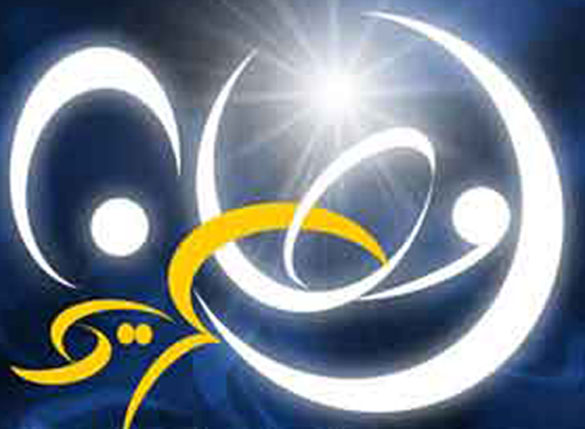Muslims Celebrate Ramazan As Spiritual Discipline, Compassion And Means Of Salvation

By
Safia Malik, New Age Islam
14 March
2024
This Is The Month When The Holy Qur'an Is
Believed To Have Been Sent To Men And Women "As A Guide, A Means Of
Guidance, And A Means Of Salvation."
-----

Muslims consider
Ramadan to be one of the most sacred times of the year. It is the ninth month
of the Muslim calendar. This is the month when the Holy Qur'an is believed to
have been sent to men and women "as a guide, a means of guidance, and a
means of salvation."
During this
month, Muslims fast strictly from dawn to sunset. They are not allowed to eat
or drink (even water) during the day. Fasting is a form of worship that helps
people get closer to God, a form of spiritual discipline, and an act of
compassion for those in need. Prayer and Iftar feast mark the end of
every day’s fast. Visiting family and friends after Iftar is a
tradition.
Ramadan
comes to an end, and Eid al-Fitr is celebrated in order to mark the end
of fasting. It is a season when people come together for feasts and presents.
In addition, it is a tradition to bestow unique presents upon the needy. Let us
have a more detailed insight into everything connected with Ramadan, including
the ones who are exempt from fasting and other cultural and religious practices
typical of this month.
What is
Ramadan?
First, it
is important to review the definition of Ramadan so that one can understand the
rules for Ramadan. The Prophet Muhammad (PBUH) is believed to have received the
Qur'an and the words of Allah (SWT) for the first time during Ramadan.
Throughout the subsequent years, Ramadan revelations were disclosed to the
Prophet (PBUH) in accordance with Sawm, the fourth pillar of Islam.
In addition
to observing Sawm, every Muslim must adhere to the five pillars of
Islam, which are the core values of Islam. When translated into English, the
word Sawm means fasting. Ramadan is the period during which this is done.
What is
The Date of Ramadan?
The Ramadan
is the Ninth Month of Islamic Calendar. Based on the lunar calendar, the
dates of Ramadan in the Islamic calendar vary by approximately 10 days every
year. Even though the dates of Ramadan fluctuate, Muslims always begin the fast
between the sighting of the ninth and the tenth new moon.
In some
regions of the world, Ramadan might occur during the summer months and in
others during the winter.
What Are
the Ways Muslims Celebrate Ramadan?
It is
customary for Muslims to fast between sunrise and sunset. By fasting, Muslims
learn patience, mindfulness of the plight of the poor throughout the world, and
devotion to their faith. In Ramadan, we eat two meals: a meal known as Iftar,
which is eaten as soon as the sun sets, and a meal known as Suhoor, which is
eaten before sunrise.
The month
of Ramadan is a time of giving up bad habits for Muslims. Ramadan is an
opportunity for us to be closer to our Lord through prayers, good deeds,
spending time with family and friends, and helping those in need.
Ramadan is
a time when we strive to read the full Qur'an, and men attend all prayers at
the mosque during the month. Laylat al-Qadr is another night that occurs during
Ramadan. Muslims believe that Laylat al-Qadr, the Night of Power, falls
during one of the last ten nights of Ramadan. It is considered the night when
Prophet Muhammad received the first verses of the Quran. Special prayers and
acts of worship are performed during Laylat al-Qadr, as it is believed to be a
night of great spiritual significance and divine blessings.
A big
celebration takes place after Ramadan, called Eid ul-Fitr. This is a festival
in which we break our fast and give thanks to Allah for the strength he
provided us during the previous month.
What
Can’t You Do During Ramadan?
The goal of
Ramadan is to fulfil the fourth pillar of Islam, Sawm. During the Holy Month,
Muslims are prohibited from eating or drinking during daylight hours. Although
this is undoubtedly the most important aspect of Ramadan, there are also
several other things one should abstain from during this period, including:
● Using
swear words
● Lying
● Arguments
and fighting
● Participation
in sexual activities
In
accordance with Ramadan's eating rules, food and drink are not permitted during
daylight hours. During Ramadan, Muslims are not permitted to consume even
water. In order to cleanse their minds and souls, Muslims must abstain from
impure activities and thoughts. Ramadan’s eating rules allow you to devote
considerably more time to the Quran, strengthen your relationship with Allah
(SWT), and be empathetic towards those less fortunate.
Does
Everyone Observe Ramadan?
In spite of
the fact that Ramadan is a core component of Islam, it may not be possible for
everyone to participate. Thus, there is a list of individuals who are exempt
from fasting physically. The following are a few of them:
● The
elderly
● People
with fragile health
● People
who are sick or taking medications for a medical condition
● Women
who are pregnant
● Breastfeeding
women
A woman who
menstruates during Ramadan must halt her fast, in addition to the above
categories, and is considered to be legitimately exempt from continuing the
fast should she menstruate. As well, Ramadan traveling rules permit individuals
to pause their fast while they are traveling.
Diverse
Practices in Ramadan Worldwide
Depending
on the individual's beliefs, some may start and/or end Ramadan on dates that
differ from others, mainly due to their belief in different sects. There may
also be differences between interpretive schools regarding the start and end of
fasting on a daily basis. This is why it is not uncommon for some Muslims to
break their fast immediately following sundown, while others delay their break
for up to 10 minutes or more. It is generally better not to ask individuals
whether they are fasting since the reasons for not fasting may be very private
and personal.
As
fast-breaking foods, dates and milk have religious roots; however, Ramadan
cuisine is extremely varied culturally. In some cultures, the pre-dawn meal
constitutes the largest and heartiest meal of the day, while others prefer
lighter, fast-breaking meals. In other cultures, large, fast-breaking meals may
only be observed before dawn. There is a culinary "nightlife"
emerging in some contemporary cultures in which restaurants, cafes, and bars
remain open throughout the night.
Observances
of Ramadan are also shaped by culture beyond fasting and breaking of fasts. For
some, fasting may be their primary observance. Others may see it as a time to
socialize, visit family and friends, and increase their worship activities,
including prayer and recitation of the Qur'an.
Both the
manner and degree of observance exhibit significant differences.
● Ramadan
presents different challenges to each individual.
● Fasting
may be temporary or permanent for some people.
● It
can be uncomfortable to ask someone if they are fasting for a variety of
reasons.
● It
is permissible to break one's fast in the event of a health emergency.
What
Happens if a Person Fails to Observe Fast?
If you
belong to one of the above groups, you are responsible for paying Fidya. If one
cannot fast during Ramadan or misses a day or days during the month, it is
suggested that one makes up the fast at a later time. People who are unable to
make up their fast during the year may make a charitable donation in lieu of
their Fidya.
Fidya rates
vary year to year based on the cost of basic staple foods but usually amount to
about £5 per missed fast. In Fidya, one full day's worth of food is provided
for one hungry person, and it should be paid before a missed fast or at any
other time in Ramadan.
When you
intentionally break your fast during Ramadan and do not fall into one of the
categories mentioned above, you must pay Kaffarah. The Kaffarah rate
corresponds to the cost of feeding 60 people for every day missed. Fidya is £5
per missed Sawm day, so if a Muslim miss one without explanation, he or she
must either pay £300 or fast for 60 days straight. Should you break your fast
during these 60 days, you will need to start your Kaffarah again from the
beginning.
It is
forbidden to make up any missed fasting days during Eid, regardless of whether
you are required to pay Fidya or Kaffarah. There is no restriction on when you
can make up the days, except on the occasion of Eid.
What is
Fitrana?
Muslims
must also make a charitable payment known as Fitrana if their food expenditures
exceed their means. In the past, people have measured how much food they had
beyond their means using a unit called 'Sa. An equivalent amount of this would
be approximately 3 kg of basic staple foods such as wheat. In the time of
Prophet Muhammad (PBUH), at the beginning of Ramadan, those who had food beyond
their means donated one ‘Sa to those in need.
The Fitrana
is now usually paid to a charity, such as Muslim Aid, which distributes food to
those in need. Despite the slight differences from Ramadan's original history
in Islam, it still carries forward the teachings of Prophet Muhammad (PBUH) by
giving to the less fortunate.
Conclusion
Ramadan is
among the five pillars of Islam and is obligatory for Muslims to observe it to
get closer to Allah and remain steadfast in their faith. The practices and
rituals during this time contribute to a sense of community, self-discipline,
and a deepening of faith.
We hope you
have learned everything there is to know about Ramadan and will teach it to
others as well.
-----
Safia Malik is an an experienced SEO-optimised Content and Copy Writer. She contributed this article to newageislam.com.
New Age Islam, Islam Online, Islamic
Website, African Muslim News, Arab World News, South Asia News, Indian Muslim News, World Muslim News, Women in Islam, Islamic Feminism, Arab Women, Women In Arab, Islamophobia in America, Muslim Women in West, Islam Women and Feminism
